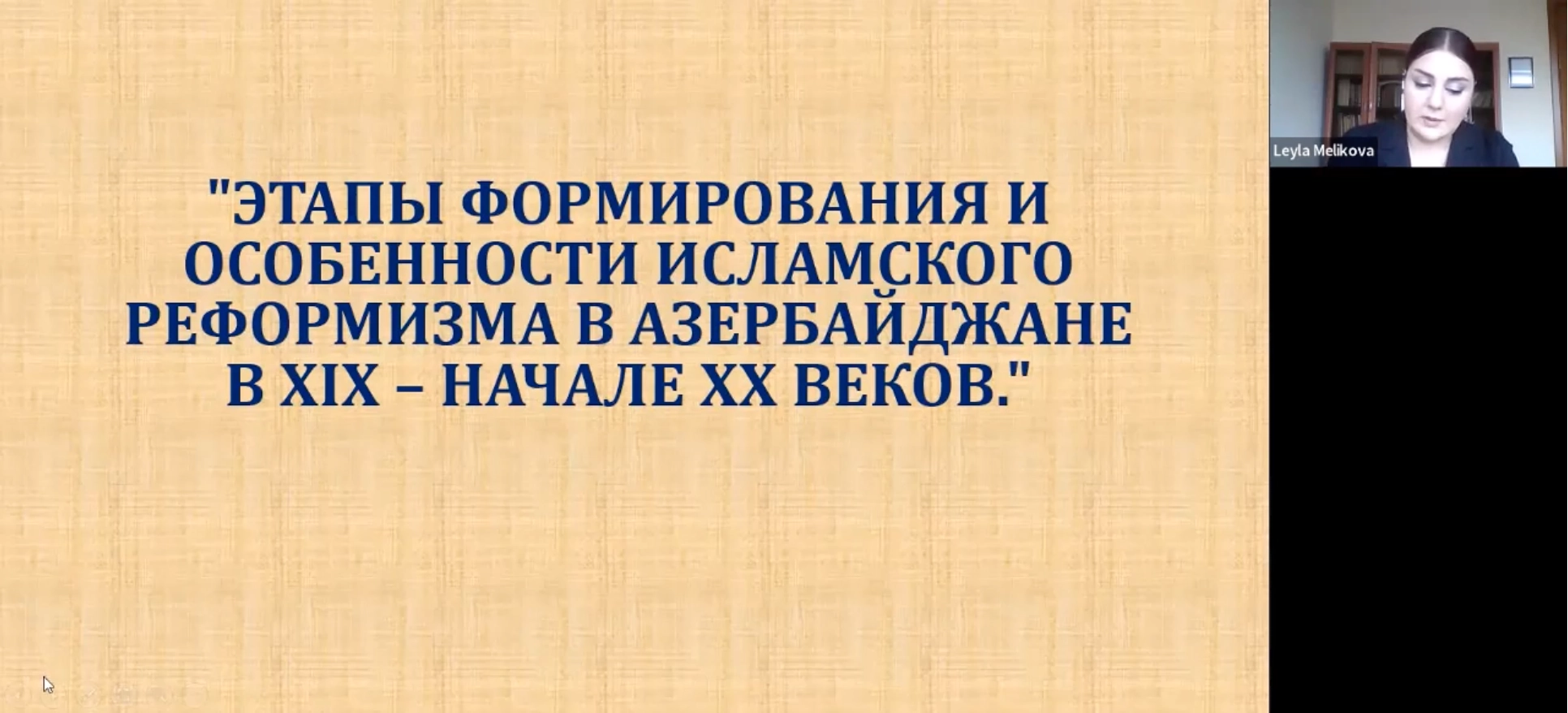Leyla Melikova, Doctor of Philosophy, associate professor, leading researcher at the Department of the History of Religion and Social Thought at the Azerbaijan National Academy of Sciences Institute of Oriental Studies named after academician Z.M.Bunyatov delivered a lecture on "Stages of formation and features of Islamic Reformism in Azerbaijan in the nineteenth and early twentieth centuries" within the project IIIT lectures series for CIS countries.
During the lecture Dr. Melikova talked about historical conditions, preconditions for and chronology of stages of Islamic reformism in Azerbaijan in the described period. She also outlined the specificity of processes which anticipated the emergence of cultural and educational reforms in the mainstream of "Jadidism" reformation movement of Islam in Azerbaijan in the mid XIX - early XX centuries. She also discussed the factors that led to the transformation of the former and emergence of a new Islamic identity in the South Caucasus in the mid-nineteenth and early twentieth centuries.
Particularly, Dr Melikova spoke about the specificities of Azerbaijani society at that time. From the second half of the nineteenth century the foundations were laid in Azerbaijani society for the processes of awareness of the advanced part of the Azerbaijani people of their national identity and the delimitation of the concepts of ethnic and religious affiliation. The first stage in this process was the clear distinction of the Turkic component in the consciousness of the Azerbaijani intelligentsia. The educator and publicist, founder of the first newspaper in Azerbaijani, Ekinchi (published in 1875-1877), Hasan bey Zardabi (Melikov), a Sunni Muslim, was a passionate advocate of this idea. However, the understanding that the concept of nation is not associated with religious affiliation was quite new in the public consciousness and, at first, it was met with misunderstanding and even hostility from a significant part of the conservative strata of the population, especially the Shiite clergy.
More than 40 participants from Azerbaijan, Georgia, Kazakhstan, Ukraine, and Kyrgyzstan registered for the lecture.
A recording of the lecture is available on the YouTube channel of the Institute of Knowledge Integration https://www.youtube.com/watch?v=p7Ket8_2jtg









